When people think of a safari in Kenya, they instantly envision the sweeping landscapes of the Masai Mara. But a Kenya village visit is a must when exploring the country. It was a stop custom-made by our guide Makau. He wanted us to experience the culture of Kenya and took us to his hometown village of Mbitini, which is located three hours outside of Nairobi. It may have only been a short drive from the city, but it felt like a world away.
Visiting a Village in Kenya – Mbitini
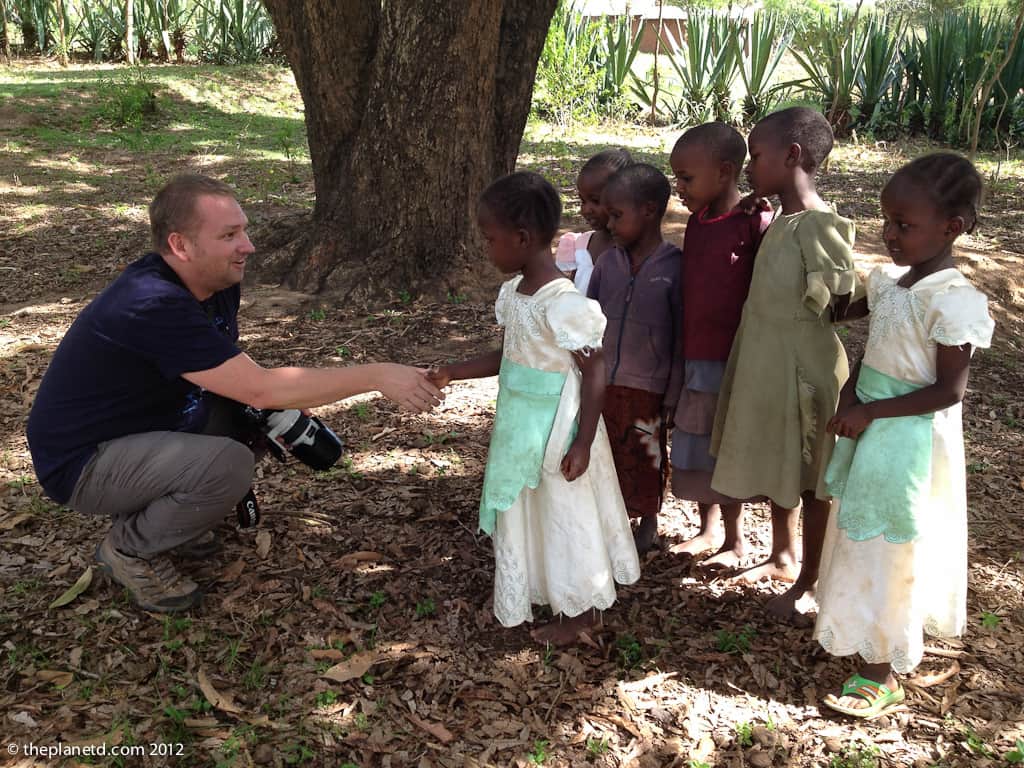
Our first stop was the village school, where we met the men of the Mbitini who were making bricks to build a library. Makau has been very fortunate in his life and has brought some of that fortune to his village.
He stresses to us that he doesn’t want to give handouts to people simply, he wants to empower them and show them that great things can happen when they work together as a community. Read more: 14 Best Travel Charities to Support This Giving Tuesday
Making Bricks for the Community
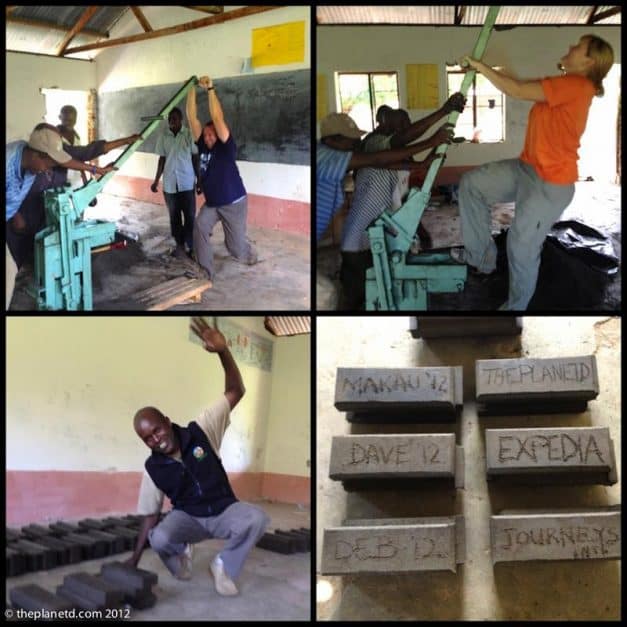
With funds raised through his foundation, he bought a brickmaker so that the village can start to build their structures by hand with the more efficient and environmentally friendly way of pressing cement together.
In the past, people made bricks from the earth, moulded them into squares, stacked them and then set them on fire to seal them together.
Now that they have a modern machine to press the bricks together without fire, they can build houses and schools without having to cut down forests.
All the materials they need are right here in the village.
The cement comes directly from the ground.
They simply dig it up, sift through it to make sure there are no rocks or branches in the mixture and then add water.
Water is Scarce in the Village
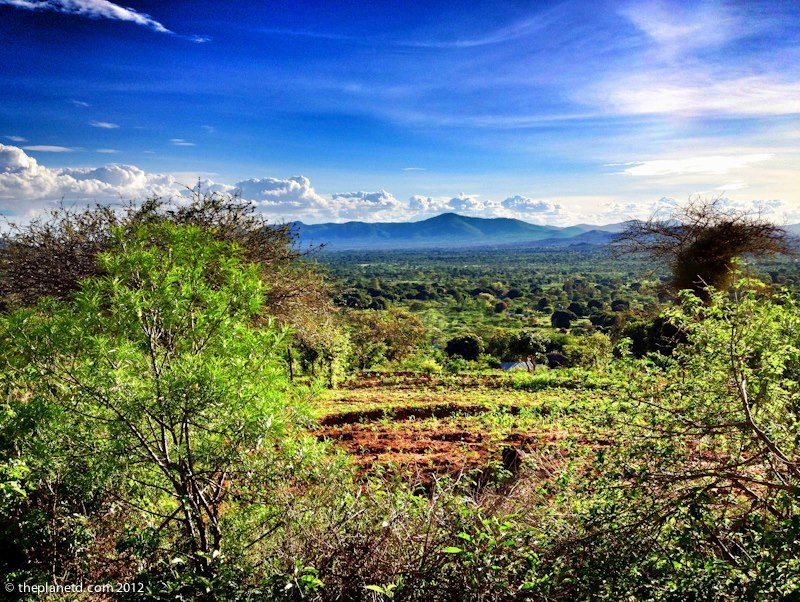
Luckily it takes very little water to mix the cement as this village relies strictly on rainwater and runoff for its water source.
Water is scarce here and women have to walk up to 5 km a day each way to fetch and carry water for their survival.
Makau is also working to lay pipes to catch the mountain runoff and to build tanks to hold the water through the dry season. That will make everyone’s life much easier.
Women Work Hard in Kenya
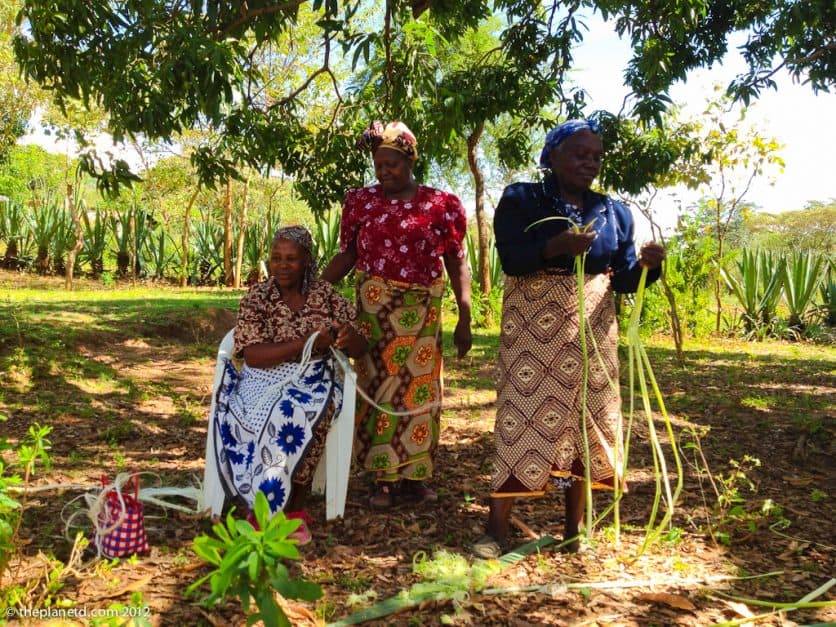
The women of Kenya work very hard. They wake up as early as 3:00 am to walk 5 km to carry water.
When the women return after gathering water, they have to prepare food for the household, get ready for school (if they are lucky enough to go to school) and take care of the livestock.
Women in Africa are still struggling for equal rights and it is no different in Makau’s village.
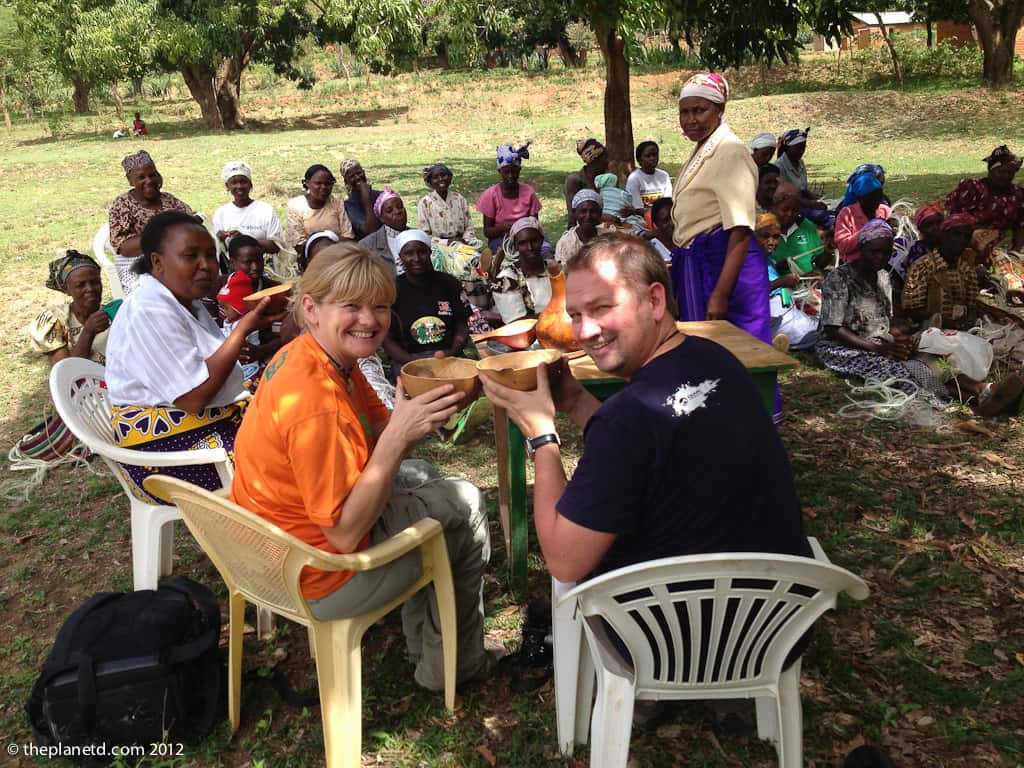
the women of the village and they are the most inspiring, resilient and empowering women you will ever meet.
They may have very little, but they hold a very strong will. Each week, they meet in the afternoon to make ropes together and support one another.
They sell the ropes in town for 4 KES. This gives them some money to help send young girls to school or to buy some extra food.
It takes a lot of rope to make any sort of impact as 83 KES is equivalent to $1 USD.
But it does give them enough to make a difference in their lives.
To have a community where they can brainstorm ideas and empower one another is helping to make progress in this little village and instead of women facing a bleak future, they now have some hope.
There is a long way to go, but they are slowly making strides.
The School Children
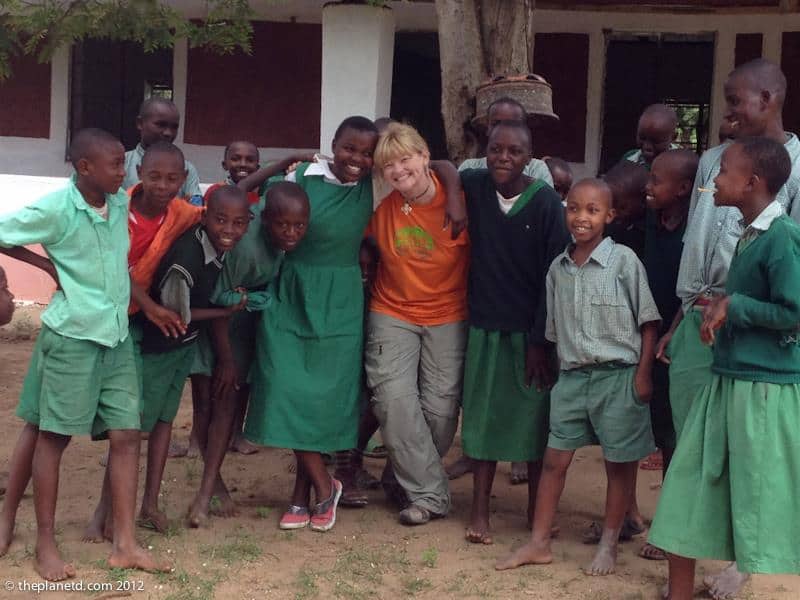
It was when visiting the grade 8 school children that this hit home to me.
Most girls cannot afford to go to high school and instead are sent to work to send their brothers to school.
It was at this school that we met a group of children that were smiling, excited and didn’t seem to have a care in the world.
One young girl, in particular, stood out.
She was feisty and confident and my heart broke when I thought about the fact that she may not have the opportunity to go to school. She may spend her future making babies and carrying water.
It is with organizations like Makau’s Kinengo Initiative that give me the confidence that things will change.
The Changing Landscape of a Kenya Village
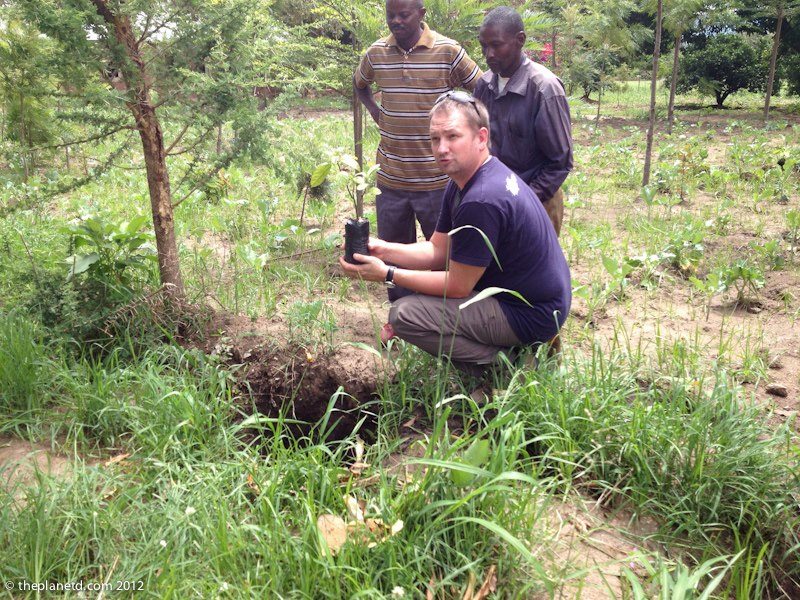
Before we left, we planted some trees in front of the school.
Makau told us that each child in the school has a tree to look after and are responsible for taking care of it all year long.
Deforestation is a real problem here and during the rainy season, the water rushes right through the area taking top soil with it leaving behind huge dry gullies.
By using the new machine to build bricks rather than cutting down trees to fire the bricks, building reservoirs to hold and trap water and by educating the villagers, the future is looking bright.
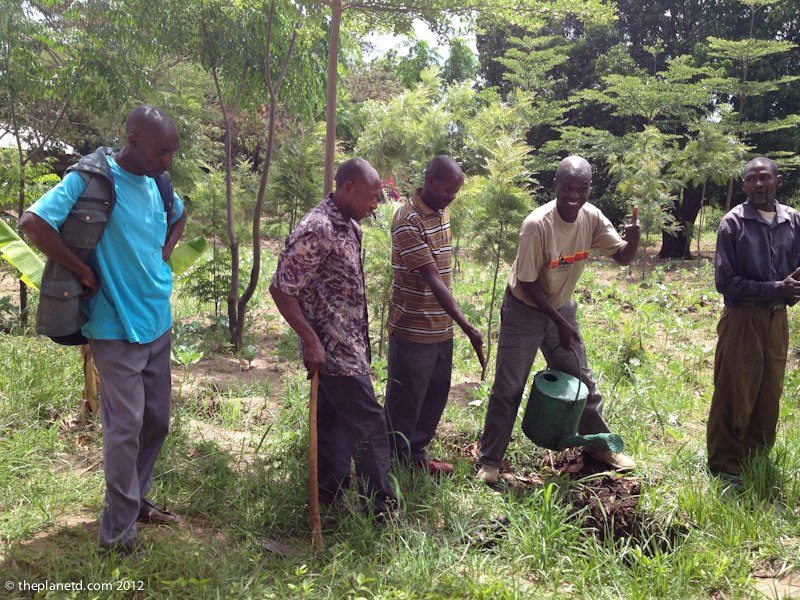
Water is the largest problem facing the people of Africa.
If they can have access to fresh rain water and store it properly, women will have more time to spend on tasks that matter, there will be less water related disease and everyone in the community will by healthy and happier.
It will be a long process but they are off to a great start and will soon be free from walking 5 km a day (each way) to fetch water by hand.
Life in the village is hard, but with people out there like Makau working to make a difference, it will only get better with time.
Read More:
Kenya Safari, the Masai Mara Experience

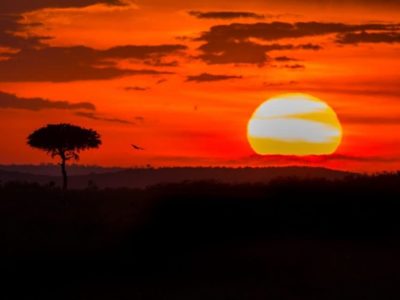
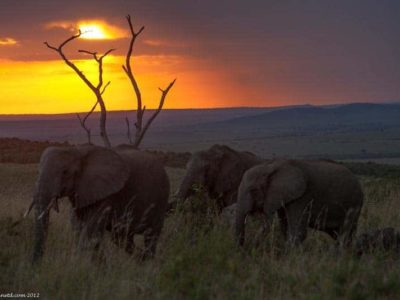
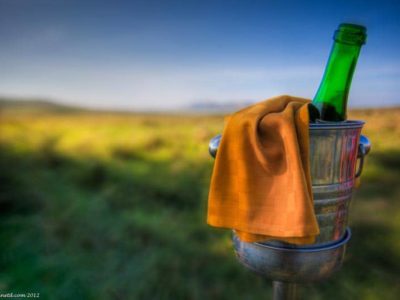
The Bricks & the children, it’s amazing, Dave! I wanna visit Africa one day 🙂
Africa is truly a special continent to visit and we really loved Kenya and visiting Makau’s village.
I’m always happy to read about development projects that work in Africa, projects that are sustainable even after the help stops. I’ve recently read Dead Aid: Why Aid Is Not Working and How There Is a Better Way for Africa, by Dambisa Moyo, and I consider it a must read for everyone who wants to help people in developing countries.
We agree with you Izy. I think that too many projects don’t empower the people but simply keep sending aid. I think that is why Makau’s project is so good. He grew up here and knows what the people need. He’s not collecting donations to put a bandaid on things, but instead, he is giving the community the tools to take care of themselvs. I’m going to seek out Dead Aid and give it a read. Cheers.
oh..this one touched my heart.good one.
Man, man, man, man, man… this post makes me wanna cry. So beautiful. Damn.
Thanks Bret, I’m glad you enjoyed it. Makau’s project is truly inspiring.
Wow I loved this post and I love that you’re helping these beautiful people!
Thanks Andi. it is Makau that is really helping these people, we’re just getting the word out. I hope for all the best for the people of Kenya.